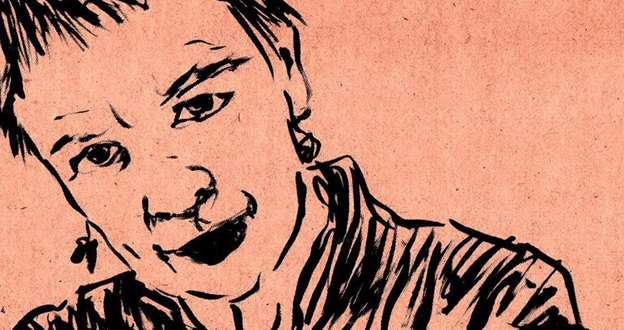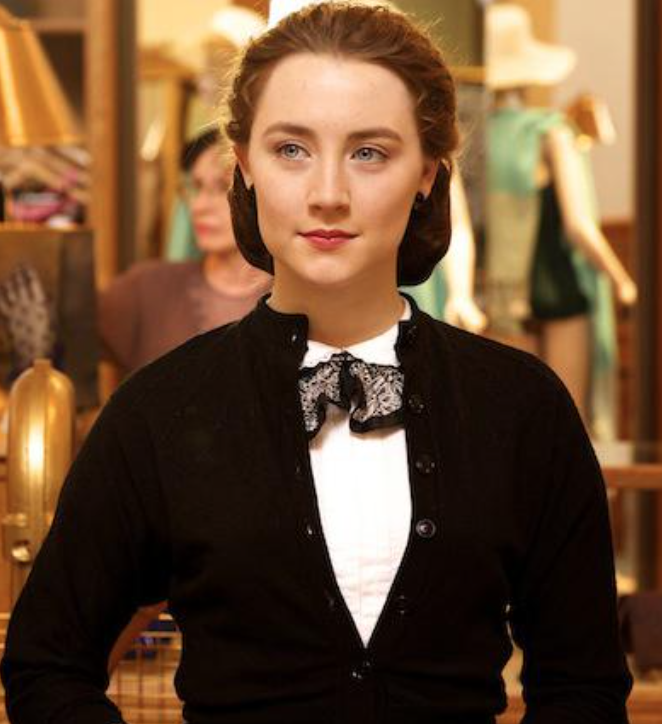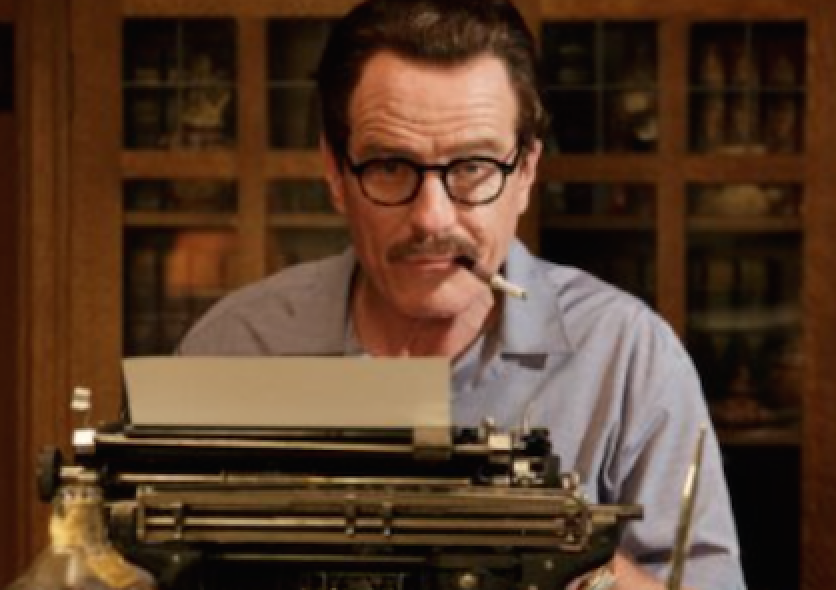 ‘Tis the season for Oscar bait. Every week, more big-scale, self-serious films hit the multiplex, and though some are fantastic (“Room,” “Spotlight“), they tend to eclipse smaller projects like “Heart of a Dog,” a micro-budget meditation on loss, love, and one very charismatic pet. Yet this is quietly one of 2015 cinema’s best offerings – so much so that it’s gaining traction despite terrible odds. Recently acquired by Abramorama and HBO Documentary Films, it went into wider release a few weeks ago, and will receive an HBO debut in 2016. It’s no surprise, really, given that this film is written, directed, and narrated by Laurie Anderson. A true survivor in the precarious world of performance art, she has a long history of backing into success just by being her puckish, wondering self. Continue Reading →
‘Tis the season for Oscar bait. Every week, more big-scale, self-serious films hit the multiplex, and though some are fantastic (“Room,” “Spotlight“), they tend to eclipse smaller projects like “Heart of a Dog,” a micro-budget meditation on loss, love, and one very charismatic pet. Yet this is quietly one of 2015 cinema’s best offerings – so much so that it’s gaining traction despite terrible odds. Recently acquired by Abramorama and HBO Documentary Films, it went into wider release a few weeks ago, and will receive an HBO debut in 2016. It’s no surprise, really, given that this film is written, directed, and narrated by Laurie Anderson. A true survivor in the precarious world of performance art, she has a long history of backing into success just by being her puckish, wondering self. Continue Reading →
Archive | Book Matters
Swoony and Sincere: ‘Brooklyn’
 Colm Tóibín’s Brooklyn (2010) is a lovely novel. About Eilis, a 1950s Irish girl who moves to America but feels the pull of her homeland, it offers gently powerful insights about the complexity of the immigration experience. Restrained and wonderfully quiet, this is just the sort of novel that doesn’t translate well to the big screen. Yet “Brooklyn,” written by bad-boy author Nick Hornby and directed by John Crowley, is an equally lovely film, one that captures all the nuance of its antecedent without resorting to the clichés that can doom period adaptations. There’s not even a voiceover.
Colm Tóibín’s Brooklyn (2010) is a lovely novel. About Eilis, a 1950s Irish girl who moves to America but feels the pull of her homeland, it offers gently powerful insights about the complexity of the immigration experience. Restrained and wonderfully quiet, this is just the sort of novel that doesn’t translate well to the big screen. Yet “Brooklyn,” written by bad-boy author Nick Hornby and directed by John Crowley, is an equally lovely film, one that captures all the nuance of its antecedent without resorting to the clichés that can doom period adaptations. There’s not even a voiceover.
Saoirse Ronan stars, and it’s her best performance to date, which is really saying something. Since the beginning of her career, the twenty-one-year-old Irish actress has summoned a clear-eyed gravity that has worked equally well in bad-ass YA sagas (“Hanna,” “How We Live Now”) as in Oscar-baiting epics (“Atonement,” “The Lovely Bones”). Eilis is one of her first grown-up roles, and rather than succumbing to the self-consciousness that typically afflicts former child actors, she channels her new adulthood – sometimes peacocky, sometimes clumsy – as if it’s just another tool of her corporeal instrument. Such physicality is handy in this exceptionally nonverbal story, in which most people say the opposite of what they are feeling, if they say anything at all. (Not for nothing did Freud declare the Irish the only people impervious to psychoanalysis.) Continue Reading →
Razzle-Dazzle Redshirts: ‘Trumbo’
 Dalton Trumbo may not be well-known today but at the height of the Hollywood Red Scare he was a household name. The author of the National Book Award-winning novel Johnny Got His Gun (1939), he was a former war correspondent who, in the 1940s, became one of the country’s highest-paid screenwriters. (Credits include “Spartacus” and “Exodus.”) He was also an outspoken member of the American Communist Party, which raised the hackles of the Joseph McCarthy-led House Un-American Activities Committee (HUAC) during the 1947 investigation of Communist influences in the motion picture industry. Trumbo soon became one of the “Hollywood Ten” – a group of screenwriters and filmmakers who, upon refusing to testify in Congress, served one-year prison sentences and were subsequently blacklisted for more than a decade from working for any movie studio. Still, he won two Academy Awards while blacklisted – one was originally given to a front writer, and the other was awarded to “Robert Rich,” Trumbo’s pseudonym – and, after the ban was lifted in 1960, received official credit for both: “Roman Holiday” and “The Brave One.” He died at age seventy, a vindicated man.
Dalton Trumbo may not be well-known today but at the height of the Hollywood Red Scare he was a household name. The author of the National Book Award-winning novel Johnny Got His Gun (1939), he was a former war correspondent who, in the 1940s, became one of the country’s highest-paid screenwriters. (Credits include “Spartacus” and “Exodus.”) He was also an outspoken member of the American Communist Party, which raised the hackles of the Joseph McCarthy-led House Un-American Activities Committee (HUAC) during the 1947 investigation of Communist influences in the motion picture industry. Trumbo soon became one of the “Hollywood Ten” – a group of screenwriters and filmmakers who, upon refusing to testify in Congress, served one-year prison sentences and were subsequently blacklisted for more than a decade from working for any movie studio. Still, he won two Academy Awards while blacklisted – one was originally given to a front writer, and the other was awarded to “Robert Rich,” Trumbo’s pseudonym – and, after the ban was lifted in 1960, received official credit for both: “Roman Holiday” and “The Brave One.” He died at age seventy, a vindicated man.
Trumbo’s story is one of the few Hollywood tales that actually deserves to be made into a movie (though many more are), and “Trumbo,” directed by Jay Roach and adapted by John McNamara from Bruce Cook’s biography, is duly a study in Tinseltown razzle-dazzle, complete with gorgeous costumes and set designs, original film footage, zinging one-liners, and enough hokum to hurt our teeth even as we’re pumping our fists in the air. Bryan Cranston stars, and it’s his first endeavor since “Breaking Bad” that makes good use of his character-actor charisma in a leading role. When he’s not playing for the cheap seats with big, meaty speeches, he’s writing in bathtubs with cigarette holders clamped between his teeth and glass tumblers of scotch by his side; the succession of his shiny manual typewriters is enough to make us long for Hollywood’s golden era, warts and all. Continue Reading →
